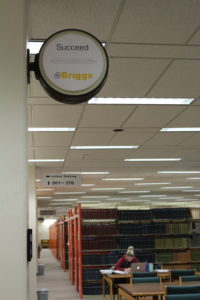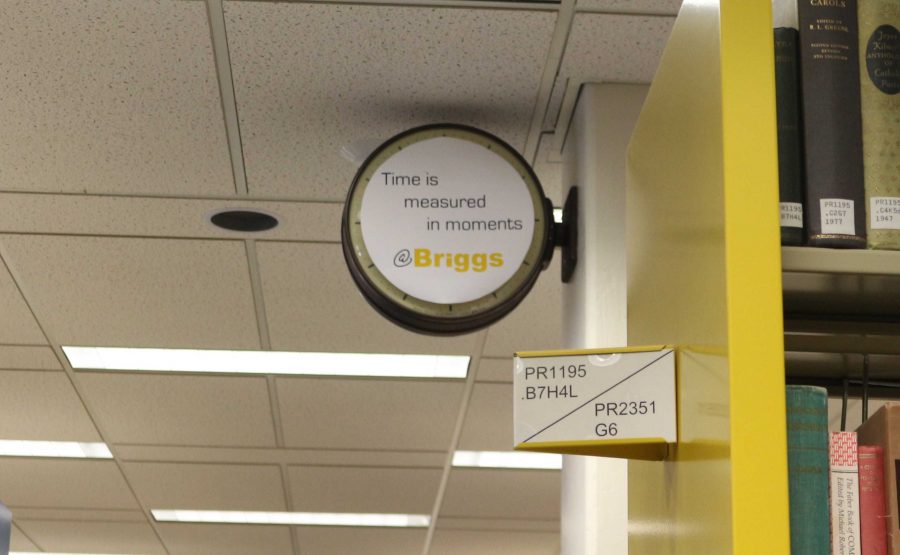Time passes differently in Hilton M. Briggs Library and it’s not because of the quiet study environment. It’s due to an old clock system.
The centralized clock system used to control Briggs Library’s almost 60 clocks reset itself to the wrong time this summer. Facilities and Services refused to pay for fixing the system, so someone anonymously donated $3,000 to fix it.
It should be completed by Nov. 17 at the latest.
Facilities and Services has been phasing out clocks across campus, said Associate Vice President of Facilities and Services Dean Kattelmann, because students don’t look at clocks anymore.
Samantha Andersen, junior elementary education major said she doesn’t look at the clocks in the library.
“I usually just look at my computer so I guess I didn’t notice,” she said.
Over the past decade, Facilities and Services has reducing clocks in campus buildings due to the cost of maintenance and because Kattelmann believes student fees can be “used better elsewhere.”
“How many students don’t have a cellphone?” he said.
The clocks in Briggs will show the correct time soon, though. The new system will be computer-based, Kattelmann said, keeping time through the internet and calibrating clocks automatically.
The replacement should be relatively quick and easy, according to Jim Weiss, director of campus maintenance.

Paper covers clocks in Briggs Library Nov. 8. The clocks haven’t worked all semester, so library faculty covered them to prevent confusion.
Over the past 40 years, the centralized system has had its issues. From daylight saving time changing in the ‘70s or individual clocks not responding to the system, library staff have been frustrated with the system for a while.
But Chief University Librarian Kristi Tornquist doesn’t believe in phasing out the centralized clock system and believes the extended period of time with broken clocks doesn’t “reflect well” on the library.
“I absolutely think it doesn’t portray the image we would like, because we do try to provide accurate information for students and the materials they need, so they need to know the accurate time,” she said.
Right now, the only accurate place to find the time in Briggs is by cellphone, watch or the 15 battery-operated clocks which replaced the unresponsive clocks.
Tornquist heard stories of students being late to class because they thought the library clocks presented the correct time. She then made the decision to “get those clocks covered up.”
The library staff covered the clocks with white paper circles and put a sign on the door to prevent any incidents of students being late while the library waited for a solution.
Tornquist said she and the staff decided to put fun sayings on the paper.
The almost 60 clocks are covered with motivating phrases and puns, like “there’s no time like the present” or “study.”
“I thought it was a good work-around to put the papers on there,” said Derek Friend, master’s student in data science. “I don’t know what it takes to fix. It’d be nice (to fix them).”



















